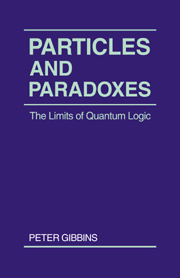Book contents
Summary
Metaphysics in the grand style, the product of a philosopher of genius working out from scratch and from his armchair a new conception of ultimate reality, has been out of fashion for a hundred years or so. This is not only because the results of this activity have so often been absurd. It is partly because other disciplines, such as physics, have developed remarkable and puzzling pictures of bits of the world, pictures that are at least as interesting as, at least as ‘deep’ as, and much more reliable than those of the armchair metaphysician.
Unlike armchair metaphysics, the theories of physics are the results of the efforts of many minds. They are also tested against the world in experiment and are continuously applied in technological devices and in weaponry. We take them seriously. Just why, and in precisely what respects, we should take them seriously is a problem for the philosophy of science. But we do, and if we were asked what is our best account of the way the world is, most of us would cite the fundamental theories of physics.
If armchair metaphysics is out of date, a new kind of metaphysics, scientific metaphysics, has come into fashion. The new metaphysician asks: what is there in the physical world, and what is true of what there is in the physical world? The answers are provided by the philosophy of physics, a subject whose metaphysical part sets out to tell us the way the world is, if physics is true.
- Type
- Chapter
- Information
- Particles and ParadoxesThe Limits of Quantum Logic, pp. 1 - 16Publisher: Cambridge University PressPrint publication year: 1987



